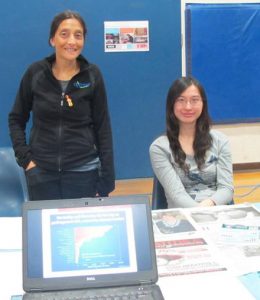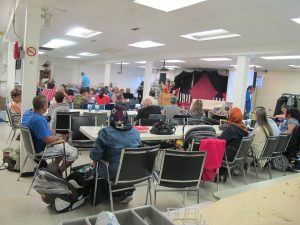This page is an archive. Its content may no longer be accurate and was last updated on the original publication date. It is intended for reference and as a historical record only. For hep C questions, call Help4Hep BC at 1-888-411-7578.
Click HERE for TRANSLATIONS of hepatitis B or hepatitis C information in
አማርኛ عربى বাংলা 简体中文 中國傳統的 English français فارسی pilipino Deutsch हिंदी Italiano 한국어 ພາສາລາວ Монгол Oromo ਪੰਜਾਬੀ Soomaali Español Kiswahili தமிழ் ภาษาไทย ትግርኛ Türk اردو Tiếng Việt
Why is HepCBC especially trying to connect with newcomers and immigrants from certain countries, and the organizations to which they belong or visit? It is because
- the countries they came from have a comparatively higher rate of viral hepatitis (B and C) than most other countries,
- people can have viral hepatitis and not know it (or know it but not want to acknowledge it),
- viral hepatitis, if untreated, can lead to cirrhosis, liver cancer, liver failure, and premature death,
- there is a cure for hepatitis C which is now covered in most cases by BC PharmaCare,
- there is both treatment and a vaccine for hepatitis B which is also covered in most cases by BC PharmaCare, and
- a combination of medical care and prevention can lead to the elimination of viral hepatitis in Canada

HepCBC volunteers and staff at our first information booth at the annual S.U.C.C.E.S.S. Chinese Health Fair in Sept., 2015 brought lots of information about viral hepatitis (B and C) for members of Vancouver’s Chinese community in Chinese and English. Simultaneous interpreters are a vital part of such a team. In later years we have joined up with a medical team from Vancouver Infectious Diseases Centre who brings both oral (saliva) testing for HCV and non-invasive Fibroscans (for anyone with liver disease) into the fair. Visitors are always interested to hear about the simple ways people can protect themselves from getting viral hepatitis.

HepCBC volunteers, including a nurse, were invited to speak at Surrey’s Middle Eastern Friendship Centre in 2017. We brought Arabic and Urdu pamphlets, but as many of the attendees were from Syria, they provided expert simultaneous interpreters as well. It was a very keen audience of people from very diverse backgrounds. Visitors were happy to hear that a person CANNOT get hepatitis C from hugging, kissing, sneezing or coughing, eating, drinking, or sharing food!
We recommend this great article about a mother who immigrated from India’s Punjab to British Columbia, and her young adult daughter. Both were recently treated (successfully cured!) in BC for hepatitis C, and they encourage everyone from their community to get tested at least once, to help save lives and prevent infections. They say the treatment is not difficult, and that no one should hesitate to get tested.
We also recommend that you take a look at this “Maps and Statistics about Hepatitis C in Canada” page if you are interested in maps and statistics about hepatitis B and C in Canada’s (and especially BC’s) newcomer communities. And if to see information about hepatitis B and C in a variety of languages, go to HepCBC’s “Languages and Translations” page.
THANKS for reading this information! If you have comments, or would like to help HepCBC in our further outreach efforts to combat viral hepatitis, CONTACT US through our “Contact Us” page! We are particularly excited to hear if anyone wants to invite us to an information event or is able to assist us in our translation of viral hepatitis information, or interpreting at information events.
